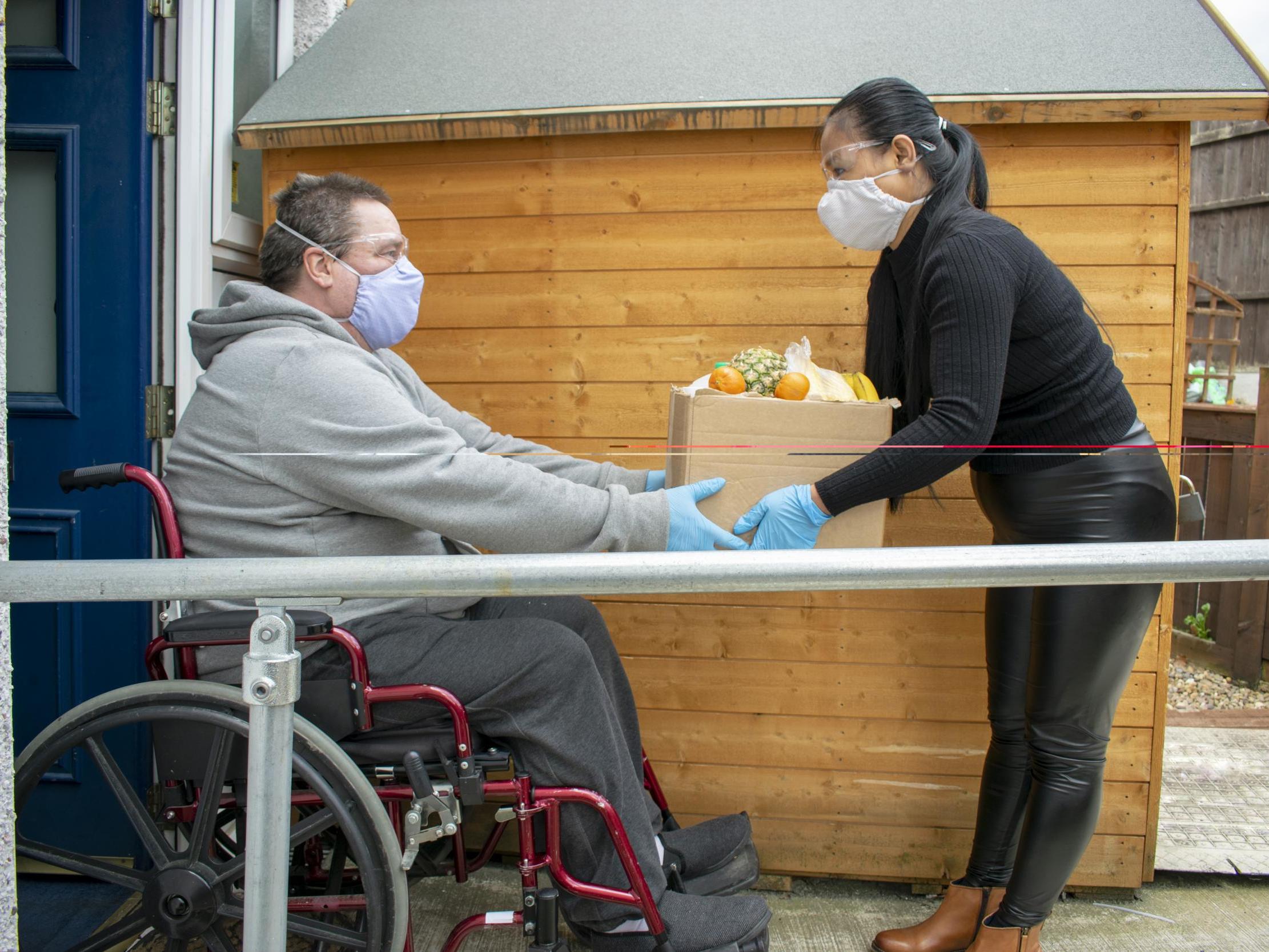Disabled people ‘fear being excluded’ in post-lockdown world, new study shows
Thirty-seven per cent of respondents worried about wearing face masks due to impairments

Your support helps us to tell the story
From reproductive rights to climate change to Big Tech, The Independent is on the ground when the story is developing. Whether it's investigating the financials of Elon Musk's pro-Trump PAC or producing our latest documentary, 'The A Word', which shines a light on the American women fighting for reproductive rights, we know how important it is to parse out the facts from the messaging.
At such a critical moment in US history, we need reporters on the ground. Your donation allows us to keep sending journalists to speak to both sides of the story.
The Independent is trusted by Americans across the entire political spectrum. And unlike many other quality news outlets, we choose not to lock Americans out of our reporting and analysis with paywalls. We believe quality journalism should be available to everyone, paid for by those who can afford it.
Your support makes all the difference.The government, businesses and the public are being urged not to forget about disabled people, as new research showed many feared being excluded from a post-lockdown world.
With shielding due to end in England and Northern Ireland on 31 July, millions of clinically vulnerable people who have stayed at home will be allowed to go out to more places, meet more people and go to work.
But research by disability charity Scope revealed disabled people’s fears that the new normal – such as face coverings, long queues and pedestrianisation in towns – will make their lives much more difficult.
A survey of 1,115 disabled people found 37 per cent of respondents were concerned about not being able to wear a face covering because of a health condition or impairment.
Since Friday, people in England have been legally obliged to wear a face covering in shops, shopping centres, banks, takeaway outlets, post offices, sandwich shops and supermarkets.
About 87 per cent of those questioned said they worried people will not respect social distancing, while 71 per cent were concerned about the lack of availability of accessible public toilets.
Figures released on Thursday also found 66 per cent of disabled people were worried about not being able to be in queues for long periods when shopping, and 46 per cent said they did not receive clear communication from the government about what they should personally do to stay safe.
Disability lifestyle vlogger Gem Hubbard said disabled people have been “forgotten” after she described the numerous obstacles she faced while shopping.
On one occasion she said she found blue badge parking bays cordoned off to create a queueing area, while on another shopping trip she could not get her wheelchair past a hand sanitiser station placed in front of a doorway.
Ms Hubbard, who has used a wheelchair from the age of nine after suffering a spinal cord injury, regularly shares her experiences on her Instagram and YouTube channels WheelsNoHeels.
She said: “Getting out and about before coronavirus could often be a challenge, but accessibility has gone out the window in the new post-lockdown world.
“After months at home I’ve been trying to get out and about a bit more, but every single time I go out there’s a problem.
“It’s so infuriating and exhausting, it makes me not want to go out any more at all.”
She added: “It feels like disabled people have been completely forgotten.”
Mark Hodgkinson, chief executive at Scope, said more than 4,000 people have signed a letter to the prime minister calling for disabled people to be factored in to the government’s recovery plan.
He said: “Redesigning our communities with stringent safety measures to help make them more Covid-safe is welcome, but it should not be at the expense of the rights and independence of disabled people.
“We know that there are many disabled people who have been shielding for the last few months who are incredibly anxious about stepping outside again as shielding pauses.”
He continued: “Disabled people have been routinely forgotten throughout this crisis, and that needs to stop now.
“There must be more clear and accessible communication from government and businesses about exemptions for disabled people.
“We also need far more public awareness and understanding about the challenges facing disabled people in the post-lockdown world.”
PA
Join our commenting forum
Join thought-provoking conversations, follow other Independent readers and see their replies
Comments